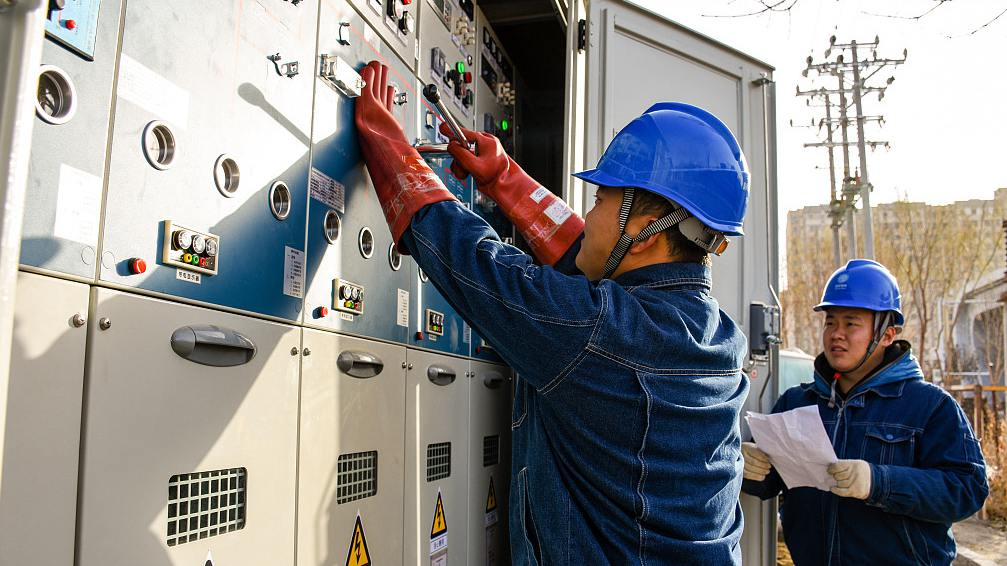
Opinion
20:33, 23-Jan-2019
For SOEs, reform should always be kept in mind
Updated
15:07, 01-Mar-2019
CGTN
03:40

Editor's note: This article is based on an interview with Xiao Yaqing, chairman of the State-owned Assets Supervision and Administration Commission, by CGTN's Tian Wei.
China has just celebrated its 40th anniversary of reform and opening-up. Looking back, China's society has experienced tremendous changes and transformed from a poor country to the second-largest economy in the world. Looking forward, the momentum of reform and opening-up needs to be kept up and further strengthened.
As the pillar of China's economy, reforms of the country's state-owned enterprises (SOEs) are of vital importance and have received both nationwide and worldwide attention.
Xiao Yaqing, chairman of the State-owned Assets Supervision and Administration Commission, shared his views with CGTN when attending the annual meeting of the World Economic Forum in Davos, Switzerland.
CGTN: Mr. Xiao, what a pleasure. In 2018, you pledged SOEs will speed up reform, but exactly how fast? Small steps? Brisk walking? Or running?
Xiao: You mentioned the word “reform.” For state-owned enterprises, reform should always take place. Because we are like any other company, we need to follow the rules of running a business and the rules of the market. So for us SOEs, the goal of reform should be constantly suited to changes in the market. The direction of the reform has been set, but that doesn't mean reform will be accomplished with one stroke.
Systemic changes will not take place overnight. We have already determined the direction and the goal of our reform in the long term, and that is internationalization, marketization, and legalization. We will push forward step by step, but each enterprise is unique. We need to adjust the goals for each enterprise according to its characteristics, its position, its role and the changes in its operating environment.
So each year we make some progress, then over time, it will snowball. So we should always keep reform in mind.
CGTN: You talk about every company. I thought SASAC would lead, then every state-owned enterprise would follow.
Xiao: So this is what we need to clarify to the outside world and to the public. The general direction for each enterprise is the same, and that is to deepen reform.
But our reform also needs to be practical. This means we need to look at the specifics of each company. We need to combine a goal-oriented approach with a problem-oriented one. We need to compare a company's existing problems with the demands of the market, and the gap is what needs to be fixed.
There are differences between businesses, and there are differences between industries, so we don't set the same requirement for all companies. We pursue reforms that are practical and based on a company's own history, own problems and own goals.
CGTN: Debt is an issue. What role is debt playing in the process of transforming from managing assets to managing capital?
Xiao: The debt issue you talked about is a very sensitive topic. It is also a key concern. I think the debt of the enterprises under our supervision stays generally at a rational level, given their development, openness, and further goals.
From a prudent perspective, we think the debt should be curbed within current levels. A reduction of debt is preferred but stability is the priority. Then we should allow for the realities of different industries. Sectors such as telecommunication and 5G definitely need more debt. More leverage can create more opportunities for such sectors.
For innovation industries, they need more investments to gain more development. But other sectors foresee more risks. Their investment decisions are left with pending issues. Then the debt level for such sectors will be lowered. Therefore, the leverage issue should be resolved in respect to the type of enterprises. There is no once-for-all answer in regard to whether the debt should be reduced or increased. We must consider different sector's conditions and market opportunities.
In general, the leverage of state-owned enterprise has been declining in a stable way.
(If you want to contribute and have specific expertise, please contact us at opinions@cgtn.com)

SITEMAP
Copyright © 2018 CGTN. Beijing ICP prepared NO.16065310-3
Copyright © 2018 CGTN. Beijing ICP prepared NO.16065310-3